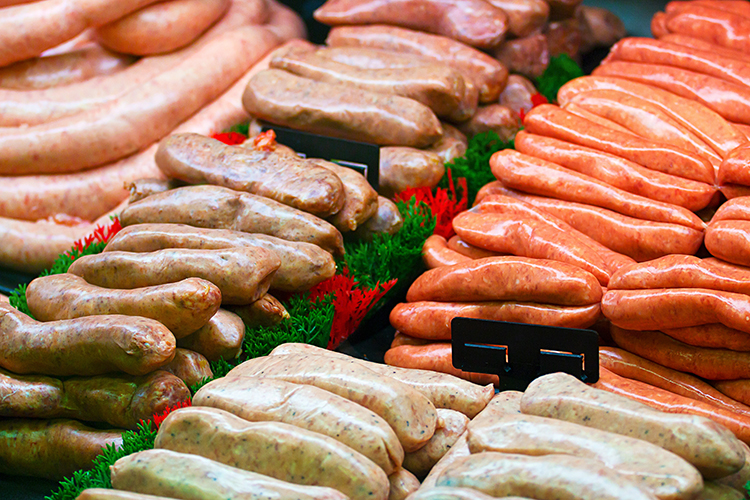Natural, time-tested ingredients can be used in innovative ways in an ever-evolving marketplace. One case in point: vinegar.
A natural ferment, vinegar has been used to preserve foods for thousands of years and is commonly used in home kitchens, for pickling vegetables, and is a frequently used and longtime food preservative in commercial settings.
At a time when consumers are clamoring for natural ingredients, vinegar fits the bill. Research from Mordor Intelligence projects that products with natural preservation will grow 6.75% annually to $51.1 billion by 2024. Another study from Ingredient Communications found that consumers across North America, Europe and Asia-Pacific will pay more for foods made with ingredients they recognize and trust.
In meat marinades, vinegar serves as a tenderizing agent that helps break down proteins in tougher cuts such as round steaks, flank steaks, pork chops, and chicken breasts, among others. In processed meats, lower-acid vinegar helps manufacturers get the desired texture in their products.
Corbion offers concentrated buffered vinegars with higher pH levels to provide specific functionality while minimizing flavor impact. Buffered vinegar can also limit the sodium contribution in a product and can be applied at lower usage levels.
According to Garrett McCoy, Applications Group Manager, Corbion’s buffered vinegars have a range of pH levels, with usage depending on the finished product type. “The higher the vinegar pH value, the better the texture, juiciness, cooking performance and overall flavor. This is the preferred outcome,” he explains.
Using highly concentrated acids without buffering can lead to products like bacon, ham, turkey breast and hot dogs falling apart due a type of curdling of [meat] proteins and subsequent lack of binding.
In addition to product attributes such as taste, texture, mouthfeel and functionality, considerations like water binding and cook yield, there are food safety advantages to using buffered vinegar in meat, including RTE processed meats. The natural acid present in buffered vinegar creates a hostile environment for the growth of microorganisms such as Listeria monocytogenes. “There are three modes of action for antimicrobial functions in finished products, without creating quality challenges: the right level of protonated effective acid, suppression of water activity and the blocking of energy generation,” McCoy says. Corbion incorporates this concept and includes the various vinegar solutions in its online Listeria Control Model (https://clcm.corbion.com)
As with all ingredient usage, the type of meat application determines which vinegar choice is best. Corbion offers several liquid and powder buffered vinegars for a range of meat and poultry products:
- Verdad® Powder N6, a patented vinegar powder, is used globally and has a neutral taste. The powder can be added to spice blends and the product requires less storage and logistics to handle.
- Verdad® N9 is the most highly concentrated liquid vinegar on the market and the patented production process offers highly optimized taste with no sodium contribution
- Verdad® N450 is a highly concentrated powder blend with lower sodium and a higher pH that imparts the most neutral flavor.
- Verdad® N460 powder is a virtually sodium-free dry vinegar blend and is highly concentrated, with higher pH for neutral flavor. Trace amounts of sea salt are added to create a free-flowing powder for use in high-pH applications.
- Organic vinegars with a neutral taste for meat applications: Verdad® SB 300 (with a low pH) and Verdad PC® 300.
Similar products with different names may be available for other regions, including Europe, Latin America and Asia-Pacific.
To learn more about natural preservation with vinegar, visit corbion.com/verdadvinegars.


